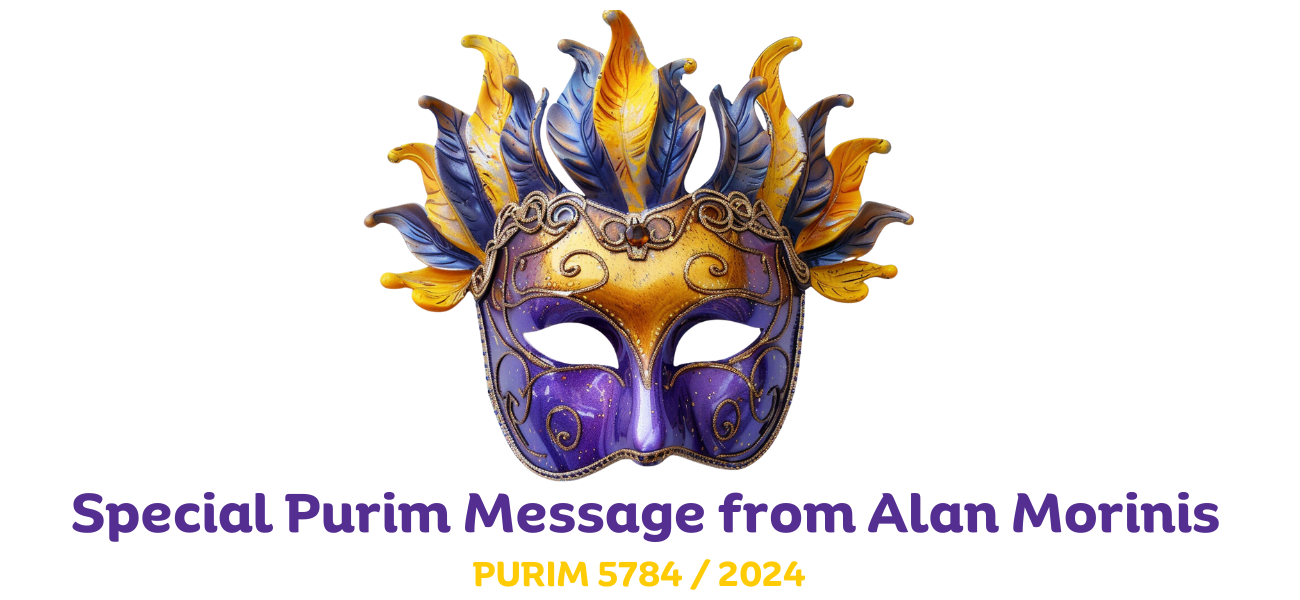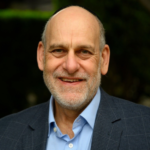
When I was a child, Purim was the highlight of the Jewish year. The costumes, the ridiculous plays, the hamantashen, sometimes a carnival; what fun!
But this year, we have to take Purim back from the kids, or at least establish an adult beachhead at the fairgrounds. The devastating attack of October 7, the war, and the resurgence of antisemitism resound with the archetypal themes of Purim, and so we do ourselves a favor by exploring those themes and drawing out the lessons that will serve us in these times.
Our Sages of the Talmud lead us into the field by asking a question:[1] “Where in the Torah do we find a reference to Esther?” The Book of Esther, the megillah, was the last book of the entire bible to be canonized and it faced some issues in gaining that place, so the rabbis were trying to anchor it in the more established texts.
They find an allusion to Esther in the Book of Deuteronomy (31: 17-18) where God is conversing with Moshe just before he dies, and promises fearful consequences if the people forsake God for idol worship and break the covenant. The verse the Talmud highlights is: “I will surely hide My face.” The Hebrew is, “v’anochi haster astir panai.”
The word “to hide” – l’hastir – and the name “Esther” are linguistically related. When Esther was vying to be queen, she hid the truth of who she was. The custom of wearing masks on Purim can be traced back to the same source.
But there is something much more profound at work here than a masquerade. The warning in the Torah is that there would come a time when God would be hidden from us, and on this very verse Rashi, basing his teaching on the same section of the Talmud, tells us that this “hiding of God’s face” will be in the time of Esther. And, indeed, throughout the entire Megillah that relates the story of Esther, Mordechai and the miraculous salvation of the Jewish people, the name of God does not appear.
The teaching here is that there are times in human history when God is present – because God is always present – but has “turned away.” These are times characterized by “hester panim,” which means “hiding of the face” and refers to situations in which God’s presence is hidden and as a result, we are seemingly on our own.
God’s hidden face has been invoked to explain every tragic chapter in Jewish history: the destruction of the Temple and the long, arduous exile that followed, the Crusades, the Inquisition, the Holocaust, and more happened because God stood back and turned aside.
Why would God conceal the divine presence from us, and allow evil to befall us? The traditional answer is because we sinned. The verse in Deuteronomy tells us that first the people turned to idol worship and broke the covenant, and only after that did God look away.
I’m unhappy to leave things with just this explanation. It opens the door for too much blaming the victim. The conclusion is that the destruction of Jewish communities in the Crusades happened because we sinned. The 1.5 million innocent Jewish children who died in the Holocaust endured hester panim because the Jewish community assimilated and turned their collective back on God.
Whenever something bad happens, the cause can be tracked back to our own errant behavior, so God remains blameless, and we are always at fault.
But the notion of the hidden face has a subtlety in it that helps us out here. We make an error if we think Divine Providence was absent even when negative things were happening; it is not absent, it is concealed from sight.
We can see that principle at work in the Purim story, where God played God’s role on behalf of the people, but in a hidden rather than open way. We might think that an open miracle like the splitting of sea or the stopping of the sun for Joshua are much greater miracles than what we find in the Megillah, but Rav Yerucham Levovitz, the great Mussar teacher from the Mir yeshiva in the early 20th century, says the opposite:
A hidden miracle is, in truth, a greater miracle than a revealed miracle. The Scripture goes on at length in an entire scroll about the miracle of Achashveros [i.e., Purim], and the miracle of the splitting of the Sea of Reeds is included in a few verses (Da’at, Chachmah uMussar p. 389).
It’s an interesting metric to apply. It takes a lot of pages to reveal what is hidden, whereas what is there for the eye to see gets knocked off in a few paragraphs.
Miracles are happening all the time. These days, they tend not to be revealed as breaches of the patterns of nature, but take place within those laws, just as in the Purim story. That makes them no less miraculous; it just requires a lot more time and effort to keep digging down to find the miracle that is taking shape right now, only out of sight.
This is not sugar-coated faith. Bad things do happen. But living in a time of darkness and challenge cannot cause us to fall into our own hester panim, our own turning away from peering deeply into the present, not so much to be able to detect what God is doing – that’s concealed, after all – but to identify our own role in making God’s plan happen.
By not turning my face away, I am in position to ask, what does God want from me at this time, in this place? Isn’t that just what Mordechai and Esther did? We can learn from them. Each of us can be an agent of the miraculous, but only when we turn our face to illuminating the personal sacred task that lies before us.
I invite you to ask yourself, as you look out at the world and the many challenges we are all facing these days, “What does God want from me right now?”
I advise you to ask that question aloud, even if you are sitting alone in the house. And I advise you to answer aloud as well. Thoughts in the mind are, frankly, feeble when compared to the robustness of words spoken aloud.
And then, take a moment to identify one small step you can take in the direction of making that happen. Don’t let your resolution remain a thought. Draw strength from Mordechai and Esther, who took action, and take action yourself.
[1] Chullin 139b.

Alan Morinis
Founder of the Mussar Institute
